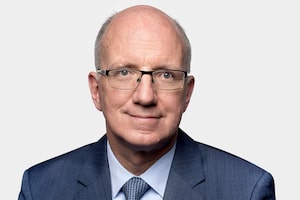As any smart gambler knows, over time, the house always wins.
One of the country’s largest casino owners, Great Canadian Gaming Corp., is trying to ensure the odds remain in their favour as governments update regulations to rope in rapidly expanding worlds of online gambling and sports betting, known in the industry as iGaming.
Great Canadian, owner of 25 properties in four provinces, is lobbying hard for existing casino operators to be given two years of exclusive rights to run iGaming in Ontario. The province’s Progressive Conservative government is expected to announce new policies in coming months, ahead of a June election, after creating an oversight agency called iGaming Ontario last July.
In a study leaked to The Globe and Mail and other media outlets, Great Canadian claims if Ontario moves ahead with its existing iGaming policies, the result will be 2,500 lost casino jobs and $2.65-billion of lost tax revenue over the next five years.
It’s an alarmist, self-serving point of view. Governments of all stripes should ignore Great Canadian and other casino operators as they forge the framework for what could be a dynamic iGaming industry that puts consumer protection at the forefront of regulation, then gets out of the way to let entrepreneurs battle incumbents for Canadians’ gambling dollars.
Any politician considering rules that enrich existing casino operators should remember who owns those properties.
Great Canadian is actually anything but Canadian. New York-based private-equity firm Apollo Global Management Inc. acquired the Toronto-based company for $2.48-billion last September. Apollo is making headlines as billionaire co-founder Leon Black battles his former partners over the former CEO’s exit last year.
Rival Gateway Casinos & Entertainment Ltd., with 28 properties in B.C., Alberta and Ontario, is owned by Toronto-based private-equity fund Catalyst Capital Group Inc. and just borrowed US$1.25-billion from another major U.S. fund manager, Fortress Investment Group LLC.
New iGaming regulations that entrench casino owners at the expense of potential new players serve the interests of a handful of private-equity funds, while doing nothing to reward innovation in the sector by domestic and foreign companies.
Casino operators that want to expand aggressively into iGaming should have every opportunity to do so. However, the game should also include players from outside the gambling industry. Tech and media companies, along with entrepreneurs, have every right to be at the iGaming table.
Think about how federal and provincial governments handled the admittedly messy introduction of legalized cannabis. Politicians didn’t allow the three big domestic tobacco companies, or the distilleries and beer makers, to control the sector. Instead, government policies allowed a new crop of producers and retailers to launch businesses. The industry is now generating significant tax revenue as it consolidates around the major players.
Canadian governments are playing catch-up on regulating online sports betting and gambling. They’ve only started to tap this market with products such as Pro-Line, the sports wagering platform run by the provincially owned Ontario Lottery and Gaming Corp. Anyone inclined to wager on last Sunday’s epic Buffalo Bills’ game against the Kansas City Chiefs could have also done so in iGaming’s massive grey market, on foreign-based platforms that make negligible contributions to provincial coffers. Online poker sites run advertisements on prime-time sports broadcasts, and are clearly targeting young players.
The current lack of regulation allows grey market iGaming businesses to build brands and customer bases, with minimal scrutiny. Given the historic ties between gambling and organized crime, the lack of oversight makes it easier for unwanted players to enter iGaming in Canada.
Gambling revenue in Canada runs to $20-billion annually; it’s an industry poised to grow as it becomes easier and more socially acceptable to wager online. As lotteries and existing casinos show, iGaming is a business that will help fill provincial coffers.
If Ontario Premier Doug Ford and other politicians want to preserve, or enhance, provincial gambling revenue and ensure online gamblers play on platforms that are responsibly regulated, they need to roll out rules. And in the brave new world of iGaming, it would be a mistake to give control of online gambling and sports betting to a handful of casino owners. The house doesn’t get to win this game.
Your time is valuable. Have the Top Business Headlines newsletter conveniently delivered to your inbox in the morning or evening. Sign up today.
 Andrew Willis
Andrew Willis